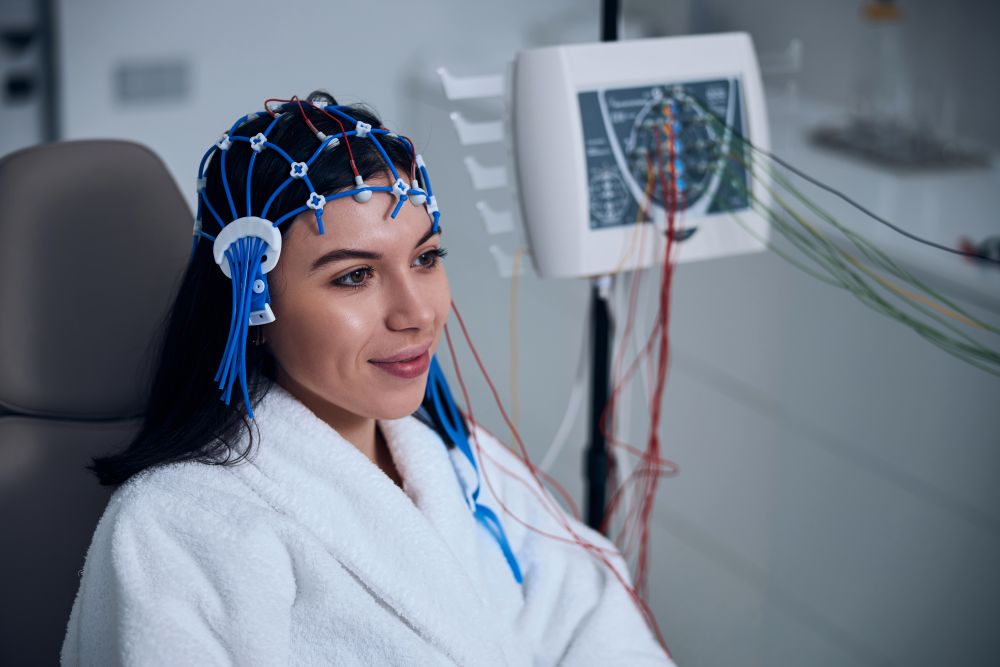🧠 Is AI Making Us Mentally Lazy? Brain Scan Study Raises Concerns
Posted 5 months ago
Biomedglobal Report - June 28, 2025
In an age where artificial intelligence writes our emails, drafts our reports, and increasingly shapes the way we think, a new study has thrown a quiet but urgent question into the public square: what is AI doing to our brains?
A study recently published by MIT Media Lab in Cambrdige, Massachusetts, USA researchers looked into how writing with the help of ChatGPT affects brain activity. The researchers used EEG to track neural responses as participants completed a writing task under three conditions:
- Writing alone (Brain Only),
- Using a search engine, or
- Using ChatGPT
The so-called "brain-only" group of participants who wrote without assistance displayed the richest neural engagement. Those who leaned on ChatGPT showed notably lower activity in key brain regions. Also, when these AI-assisted participants were later asked to write without help, their brain activity remained diminished. In other words, it wasn't just a matter of using less cognitive effort while working with ChatGPT; it might leave a lingering imprint on how we think even when the tool is gone.
The Cost of Convenience
We've long known that technology can dull our skills. Calculators softened our grasp of mental arithmetic. GPS atrophied our internal sense of direction. But this latest research suggests that generative AI could be doing something deeper: gradually displacing the cognitive mechanisms we rely on to make sense of the world.
The study's authors describe this as a "cognitive deficit," a subtle erosion of neural and behavioral effort that builds with repeated AI use. Over time, we may find ourselves less engaged, less attentive, and perhaps less original.
There's a psychological side effect, too. Participants who used ChatGPT reported lower feelings of ownership over their writing. They couldn't recall words with the same clarity as those who had written without help.
The Illusion of Augmentation
Proponents of AI argue that these tools augment human creativity and productivity. In some contexts, that's undoubtedly true. But the MIT-led study complicates this narrative. It shows that AI assistance often doesn't enhance cognition; it replaces it.
And it's not the only research raising these alarms. Another recent study found that while ChatGPT could momentarily boost creative output, it led to homogeneity across responses. When participants returned to writing on their own, their originality flatlined.
So rather than sparking imagination, AI might be quietly flattening it, making our thoughts not only more efficient but also more predictable, more polished, but less personal. This potential loss of personal touch in our writing is a significant concern that we should all be aware of.
A Moment of Reckoning
This is not a call to abandon technology. It is a call to pay attention and ask what we might be losing in the name of ease. It's a call for critical thinking, for actively engaging with AI and its implications, rather than passively accepting its influence on our cognitive processes.
Are we trading deep thinking for fast drafting? Are we replacing exploration with suggestion? Are we writing not what we mean but what the algorithm predicts?
And perhaps most urgently, how do we keep our brains in the driver's seat rather than hand the wheel to the machine?
The answer may lie in how we choose to use these tools. As writing aids, they can help us brainstorm or overcome inertia. But as replacements for thought, they risk becoming intellectual anesthesia.
A Cautious Optimism
To write is to think; to think deeply is to be fully human. ChatGPT is brilliant, but it doesn't care, it doesn't reflect, and it doesn't grow. We do.
So, let's use AI, but sparingly, critically, and with a willingness to unplug. Not because we're nostalgic for the past but because we still value what the human mind can do when it's pushed, challenged, and fully awake. It's about finding a balance, using AI as a tool to enhance our capabilities, not as a crutch that replaces our unique human qualities.





